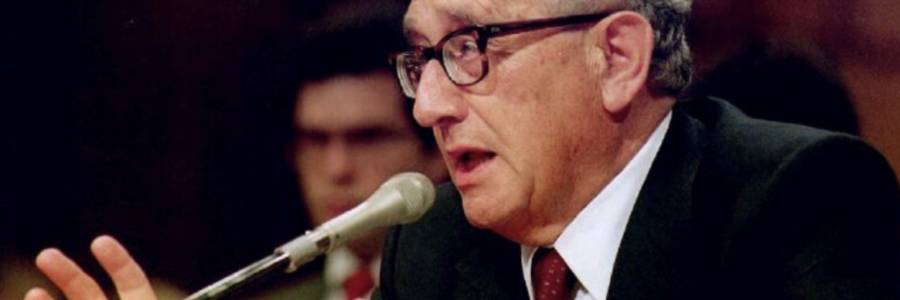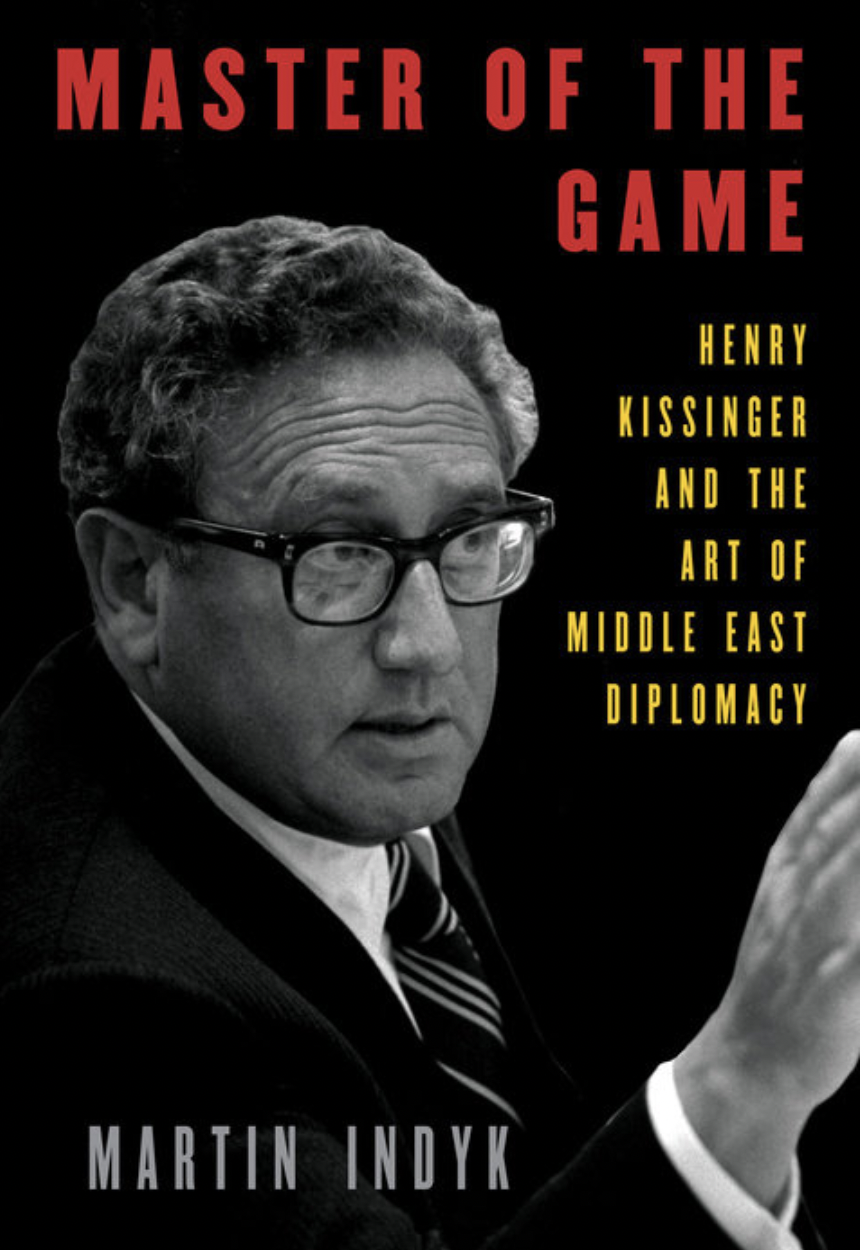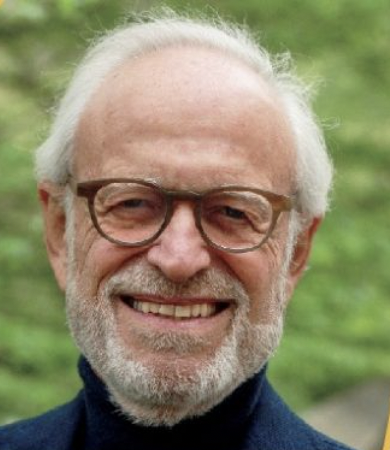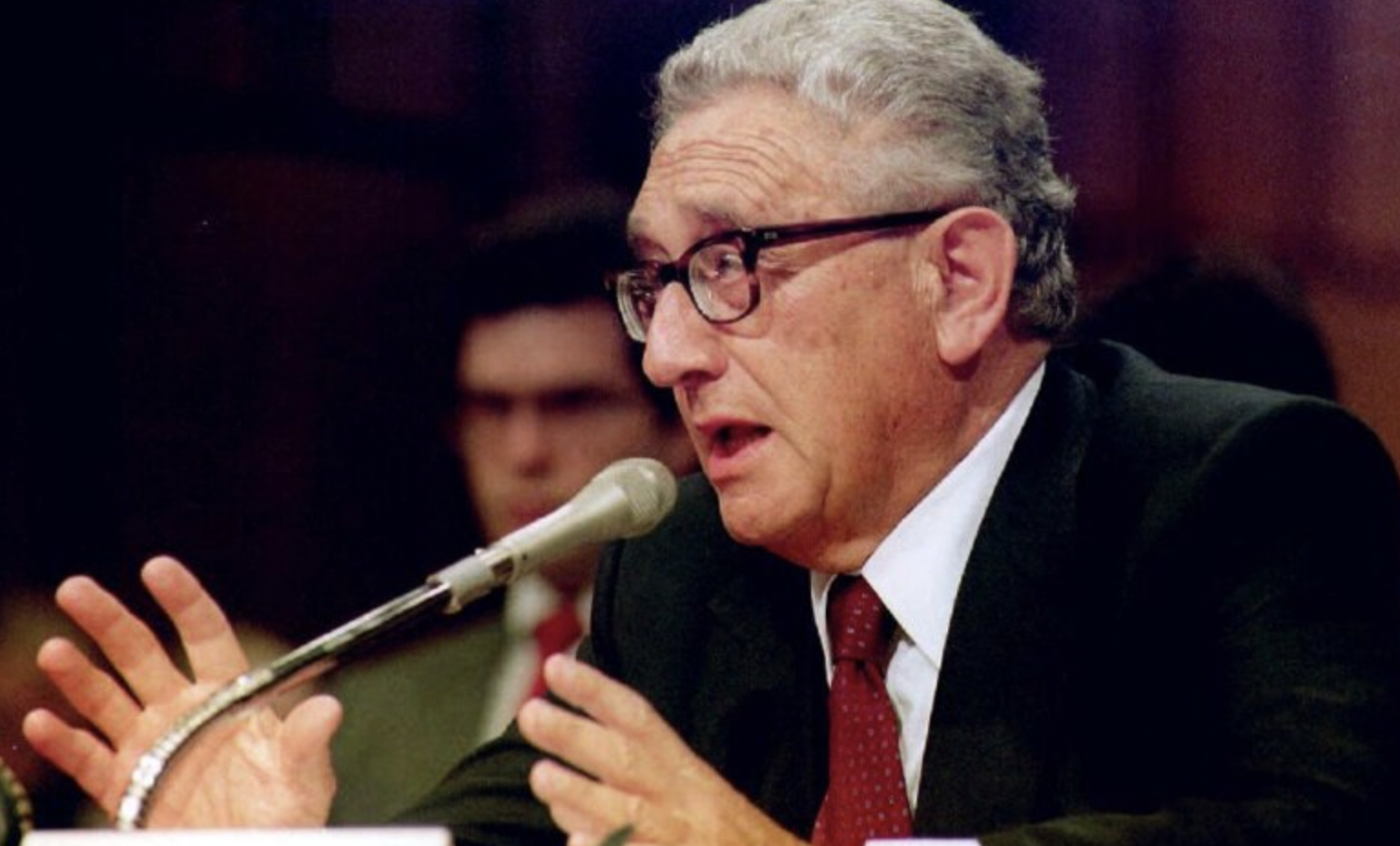
Kissinger’s Shuttle diplomacy



A provocative history of Henry Kissinger’s art of diplomatic negotiations in the Middle East that is full of unique challenges and barriers Kissinger and his successors have faced in their attempts to broker peace between Israel and its Arab neighbours. Master of the Game, reveals the drama, dazzling manoeuvres and grand strategic vision.
In 1973 the Israeli-Arab Yom Kippur war unfolded, observed from a kibbutz near Gaza, by Martin Indyk, an Australian student, who went to become a US citizen, all the frantic Shuttle diplomacy by Henry Kissinger, America’s leading diplomat from Moscow to Cairo and Jerusalem and back again in his quest to broker a ceasefire.
Martin Indyk, later served as a Middle East adviser to Bill Clinton, America’s Ambassador to Israel and Barack Obama’s Israel-Palestine envoy – a Sisyphean career that left him in sceptical career that left him sceptical of whether outsiders could impose grand bargains on the Middle East.
At the key moments during the crisis, in the midst of Kissinger’s Shuttle diplomacy, Richard Nixon, the US’s besieged president, lost his vice-president Spiro Agnew to corruption charges, fired Watergate Special prosecutor Archibald Cox, as well as the US attorney general and his deputy in the infamous “ Saturday night massacre”, and retreated for long spells to his upstairs White House quarters. Within 10-days, the US Congress launched the impeachment that would culminate in Nixon’s resignation in August 1974.
All these events left the geopolitical field wide open to Kissinger, who was both Nixon’s secretary of State and national security adviser. The battle between the Israeli and Egyptian armies in the Sinai desert was no mere sideshow as it was the hottest flashpoint in the US-Soviet cold war. Kissinger managed to negotiate a ceasefire outline with Soviet leader Leonid Brezhnev talking in Kremlin until the small hours, returned to the US the next day with a UN resolution that was passed that same night, and failed to persuade Saudi Arabia’s King Faisal to hold off on an Arab oil embargo.
Kissinger, however, was controversially awarded the Nobel Peace Prize jointly with Le Duc Tho, for the deal they had struck to end the Vietnam war. Kissinger put US forces on Defcon 3 – the highest state of peacetime nuclear alert – after the Soviets had threatened to send ground force to the Middle East as the ceasefire wobbled. According to Indyk’s research, Nixon was almost certainly not consulted before this late evening escalation. He was upstairs and possibly in his cups.
Master of the Game covers the eight-year span of Henry Kissinger’s Middle East engagement. A period in which the US supplanted the USSR as the region’s chief outside power, demonstrating Kissinger’s diplomatic philosophy.
When the situation demanded he perfected the art of creating the illusion of action –“Motion without movement”, as he called it.
Kissinger to disguise his support for Israel because he was under suspicion from the very beginning even fooled the Israelis. At one point he was greeted by protestors in Tel Aviv with banners saying, “ Hitler spared you to finish the job”, “court Jew” and “Kapo”.
To Kissinger, peace literally meant “absence of war”. Kissinger’s goal was not to reach a dramatic breakthrough, but to wear Israel’s Arab neighbours down until they accepted its existence. At one point Kissinger organised a massive airlift of US arm supplies to Israel, once the battle had turned, Kissinger did everything possible to prevent Israel from routing Egypt’s third army, A humiliation of Egypt’s Anwar Sadat would make peace impossible, Balance was everything.
Kissinger’s approach meant applying the statecraft of Klemens von Metternich and Lord Castlereagh, architects of the 18156 Congress of Vienna, which created the European “equilibrium” or balance of power, upheld by great power “legitimacy” that lasted a century . It meant avoiding the pitfalls of US president Woodrow Wilson, whose Treaty of Versailles 104 years later sowed the seeds of the 20th century’s next horrific war.
Kissinger’s policy meant that he missed opportunities. It was Jimmy Carter, and his own Kissinger style national security adviser, Zbigniew Brzezinski, who secured the Camp David agreement between Egypt and Israel. Kissinger’s cold war notoriety – the bombing of Cambodia, or the CIA-backed coup in Chile – the virtuosities laid out in Master of the Game risk being unbalanced.
Master of the Game : Henry Kissinger and the Art of Middle East Diplomacy by Merlin Indyk, Knopf $30/£38, 672 pages.
